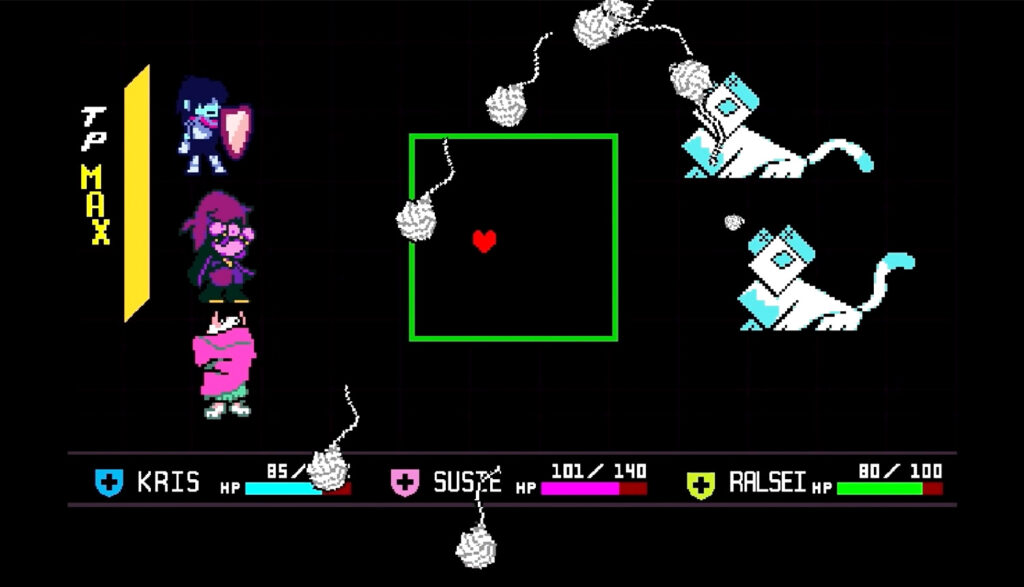
Deltarune is the spiritual successor to indie gamemaker Toby Fox’s überpopular game Undertale—a quirky 2-D role-playing game released in 2015.
This newer title is being released in a series of chapters; two are currently available from a promised total of seven. And though the T-rated Deltarune has a very simple, kid-friendly feel about it—with colorful pixel-art graphics and creative battles—what you get is much more than meets the eye.
Right out of the gate, for example, players are given the option to customize a character of their own. But when finished, that avatar is quickly discarded with the statement that “no one can choose who they are in this world.” That pronouncement immediately foreshadows that things won’t be as predictable here as gamers might expect.
Players are subsequently given control of an androgenous teen by the name of Kris, who happens to be the only human in the game’s town. After arriving late for school, Kris is paired up with a delinquent monster classmate named Susie for a group project. But before you can say Please don’t murder me, my fellow student, Kris and the growling Susie are pulled through a school storage closet into a dark alternate dimension.
There they meet the dark prince Ralsei, who tells them that they’re all destined to work together and preserve the balance between the realms of light and dark.
Thereafter, this retro-styled, top-down role-playing game separates its action into character dialogue interactions; turn-based battle encounters; and environmental puzzle solving. The dialogue is quirky and humorous, and the environmental puzzles are fun. Those turn-based monster battles feature large amounts of projectiles thrown from all directions that players must dodge and maneuver through.
The first two chapters are free to play. (Later chapters will be available for a fee.) The game is single-player, and an internet connection is not necessary for play.
As mentioned above, Deltarune’s current chapters feel fairly playful and friendly. Gamers can make positive choices that help other characters deal with emotional struggles. (For instance, we see how an aggressive bully character is actually making her growlingly angry choices out of a fear that she’ll be betrayed in friendship.)
There are creative interactions and boss battles to enjoy. And when you get into that battling side of things, the game even offers a non-violent option in most fights that can positively impact later outcomes. …
… However, parents should note that this is not really a kid-focused game. Behind the cute surface, the game subtly aims its humor and dialogue at adults. It winks at sexual verbiage, heavy drinking, same-sex attractions and darkly abusive relationships.
For instance, in an alternate story route called “Snowgrave,” players can force a female student to use magic and kill everyone and everything they encounter—from monsters to vendors to fellow students. In a very unsettling course of events, Kris can slowly increase his emotional pressure to the point of evilly corrupting this person, emotionally tormenting her and causing an innocent’s death.
Along with other subtle but dark elements such as this, the game also includes words such as “d–n” and “h—” and a few coarse abuses of God’s name.
Deltarune will appeal to many fans of gamemaker Toby Fox and Undertale, but younger players are not its best audience.

After spending more than two decades touring, directing, writing and producing for Christian theater and radio (most recently for Adventures in Odyssey, which he still contributes to), Bob joined the Plugged In staff to help us focus more heavily on video games. He is also one of our primary movie reviewers.